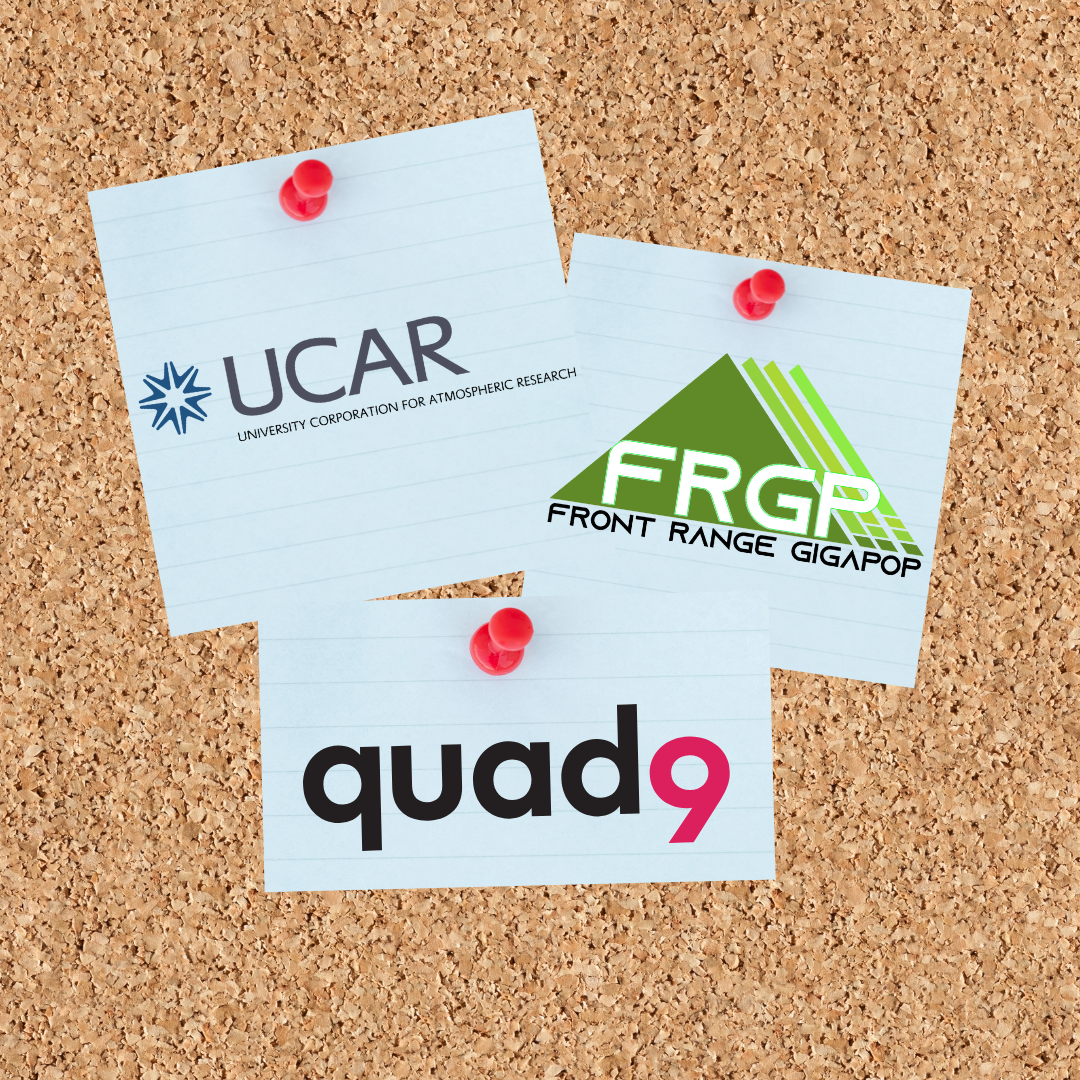Quad9 & Sony Music: German Injunction Update for July 2023

July 2023 Update – New Filing, Latest Appeal, and Quad9’s Commitment to Internet Sovereignty for All
We wanted to take a moment to provide an update regarding the imposed injunction on Quad9 by Sony Music Entertainment via the Hamburg Court located in Germany. As previously reported, Quad9 has been part of a potentially precedent-setting legal case involving Sony Music Entertainment (Germany). The suit involves Sony’s demand that Quad9 block DNS resolution for our users for a specific domain, unrelated to Quad9, on which Sony asserts there are web-based links that lead to copyright-infringing content.
We objected to the injunction, but Sony prevailed, and the injunction was upheld:
June 6th appeal Dresden Translated EN in PDF
June 6th appeal Dresden Orginal German in PDF
We also requested that the Regional Court in Hamburg set a deadline for Sony to initiate the main proceeding. Sony then initiated the main proceeding at the Regional Court in Leipzig. A hearing was held in February, and on March 1st, 2023, the Leipzig Regional Court ruled in favor of Sony Music Entertainment. This ruling meant that Quad9 had no choice but to block the domain(s) in question at a global scale, as directed by the court. Unfortunately, the decision issued by the Regional Court in Leipzig made things even worse.
Quad9 is far from ready to give up the fight in terms of protecting users’ access to information.
The Latest Filing – June 2023
We have since focused on the appeal in the main proceeding.
On June 6th, 2023, Quad9 and its legal counsel took steps to challenge the previous ruling. In an appeal filing to the Dresden Higher Regional Court, Quad9 requested that the prior ruling (Leipzig Regional Court, March 1st, 2023) be dismissed on the basis that Quad9 believes the court erred in law.
Quad9 feels that the Leipzig Regional Court erroneously classified the Quad9 service because of the assumption by the Court that Quad9’s resolution of domain names into IP addresses can give rise to perpetrator liability for copyright-infringing content.
It is the opinion of Quad9 that the Leipzig Regional Court erred in applying principles of law that the European Court of Justice and the German Federal Court of Justice have developed for certain categories of hosting providers. However, hosting providers or platforms through which content is made available for retrieval via the Internet fundamentally differ in terms of their technical functionality and the provider’s ability to influence content posted by customers to operate a DNS resolver.
This is an escalation compared to the decisions issued by the Regional Court in Hamburg. While the court in Hamburg - in our view - wrongfully did not grant the liability privileges that exist for access providers to recursive DNS resolver operators, it based its decision on the so-called “Störerhaftung” - the concept of contributory liability. While we think this is a flawed application of the law, the consequences are limited to injunctive relief. The Court in Leipzig went further and considered Quad9 a wrongdoer (as the Regional Court in Cologne did in a decision against Cloudflare). This adds an additional dimension to the liability risk, as a wrongdoer can be subject to damages if remedial action is not taken swiftly enough.
Furthermore, the statements of the Regional Court are illogical and contradictory when, on the one hand, it assumes a perpetrative act of communication to the public and thus a central role of the service provider (Judgment, p.11), and at the same time, denies Quad9 the status of a service provider. As a result, Quad9 is also denied the liability privilege under Section 8 (1, sentence 2) of the German Telemedia Act (TMG) due to a lack of sufficient possibility of influence (Judgment, p.10).
So, what does this mean? Since we believe the judgment shows significant errors in the subsumption of Quad9’s service, completely disregards legal regulations that are beneficial to Quad9 and does not sufficiently appreciate Quad9’s submissions from the indefinite omission tenor, the judgment is set for review by the Court of Appeal in its entirety.
A Further Explanation of Quad9’s Appeal Justification
To better understand Quad9’s rationale behind appealing the previous ruling, we want to explain further our justifications for why we believe that the Leipzig Regional Court incorrectly applied the law and why Sony Music Entertainment has no claims against Quad9 for injunctive relief or blocking. It should be noted that this is not an exhaustive list.
DSA Exemption of DNS Resolvers - The EU has enacted the Digital Services Act (DSA) as a document to clarify and codify various responsibilities and divisions between content and transmission and describes liability-privileged services. The DNS has been specifically called out as falling within this category: “Switching services of a "pure pass-through" nature include, for example, […] **DNS services and DNS resolvers, **[...]” _(Recital 29, Digital Services Act)
Indefinite Omission Tenor – Quad9 believes that the Regional Court is under the mistaken assumption that Sony Music Entertainment’s most recently filed request satisfies the definiteness requirement of Section 253 (2, No. 2) of the German Code of Civil Procedure. This contradicts the district court’s own legal statements (Judgment, p.9), according to which a “concrete domain” must be named in accordance with the DNS blocking decision of the Federal Court of Justice (BGH).
No Active Legitimation – Quad9 feels that the Regional Court erred in law by assuming that Sony Music Entertainment has the right to sue. The District Court merely based Sony Music Entertainment’s right to bring an action on the existence of a presumption of entitlement, which is irrelevant here, without examining the actual prerequisites.
No Liability of Quad9 for Infringements on the Disputed Website – Quad9 believes that Sony Music Entertainment cannot assert claims for injunctive relief, damages, and removal against Quad9, as Sony Music Entertainment’s service is privileged against liability pursuant to Section 8 (1, sentence 2, TMG).
Quad9 is a Service Provider – Quad9 is of the opinion that the Regional Court assumes that the liability privilege pursuant to Section 8 (1, sentence 2, TMG) does not apply because it wrongly assumes that Quad9 is not a service provider within the meaning of Section 2 (no. 1 of the TMG).
Worldwide DNS Blocking Disproportionate – Quad9 feels that the assumption of the Regional Court that it would be harmless if Quad9 blocked the domains in dispute globally for all Internet users, irrespective of the applicable law in each case (Judgment, p.12) also meets with far-reaching reservations. German legal decisions should be constrained to German jurisdiction and not implemented globally.
Administrative Fines against Quad9
A few weeks back, another layer of complexity was added when Sony applied for an administrative fine to be imposed on Quad9, which the Regional Court in Hamburg subsequently granted for allegedly not complying with the court order sufficiently.
We are now facing a 10.000 EUR administrative fine because Sony has evidenced two cases in which the domain name in question was resolved from Germany:
- Access via a VPN
- Access via a mobile network operator.
In the process of the argumentation, Sony presented evidence that by using a VPN, they were able to circumvent the blocking. Also, queries from German origins may have been transmitted across national borders to non-German servers (full information is not available on the pathing of those tests, so this is speculative) causing Sony to claim that Quad9 was out of compliance. Quad9 believes that we were acting according to the demands of the court, and that out-of-jurisdiction (across national borders) query delivery is not within the scope of the requirement.
As we previously reported, we installed a geoIP blocking on our servers in Germany immediately after having obtained the injunction. We used an industry-standard product and invested quite a bit in our infrastructure to make up for the losses of performance due to the blocking requirements.
We are of the opinion that we have no control over the routing policies of mobile operators and we also cannot control if users pretend to be in a different country using a VPN.
The fact that the court issued a fine meant that we had to impose the blocking at the global level. We hope that we will ultimately prevail as we consider it to be inappropriate and disproportionate to be required to roll out blocking based on a court decision in one country to result in a global block. We are talking about a case of alleged copyright infringement here, but other types of alleged violations of applicable laws may follow tomorrow.
What’s Next?
As described in prior posts, Quad9 is prepared to continue the battle for freedom of access to information and Internet sovereignty. Cases like this are typically drawn out over the course of months and years. With the most recent filing for an appeal, Quad9 and its legal counsel must now await a decision from the Dresden Higher Regional Court regarding the appeal.
Being a small, non-profit organization, litigation has put a financial and operational strain on Quad9 as it continues funding its defense. Quad9 asks that anyone capable consider donating to maintain the foundation of a free and open Internet. Quad9 relies on donations and grants to continue providing cybersecurity and privacy services to its global community of users.
About Quad9
Quad9, a nonprofit foundation based in Switzerland, provides free cybersecurity services to the emerging world via secure and private DNS lookup. Quad9 currently operates over 200 locations across more than 100 nations, blocking hundreds of millions of malware, phishing, and spyware events daily for millions of end users. Quad9 reduces harm in vulnerable regions, increases privacy against criminal or institutionalized interception or misuse of Internet data, and improves performance in under-served areas.
More information on Sony Music Entertainment’s attack on Quad9, censorship, and freedom of speech


